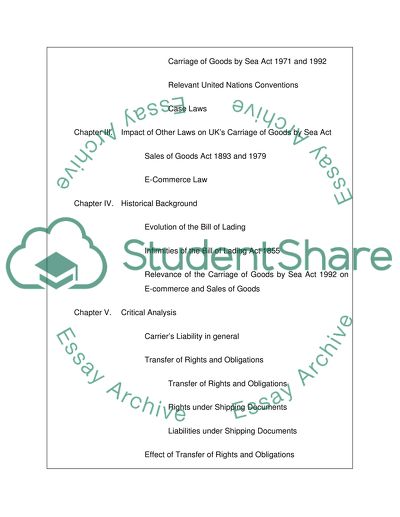Cite this document
(“Applicable Laws on Bill of Lading Dissertation Example | Topics and Well Written Essays - 3500 words”, n.d.)
Retrieved from https://studentshare.org/law/1413947-the-nature-of-the-carriesr-s-liability-in-a
Retrieved from https://studentshare.org/law/1413947-the-nature-of-the-carriesr-s-liability-in-a
(Applicable Laws on Bill of Lading Dissertation Example | Topics and Well Written Essays - 3500 Words)
https://studentshare.org/law/1413947-the-nature-of-the-carriesr-s-liability-in-a.
https://studentshare.org/law/1413947-the-nature-of-the-carriesr-s-liability-in-a.
“Applicable Laws on Bill of Lading Dissertation Example | Topics and Well Written Essays - 3500 Words”, n.d. https://studentshare.org/law/1413947-the-nature-of-the-carriesr-s-liability-in-a.


